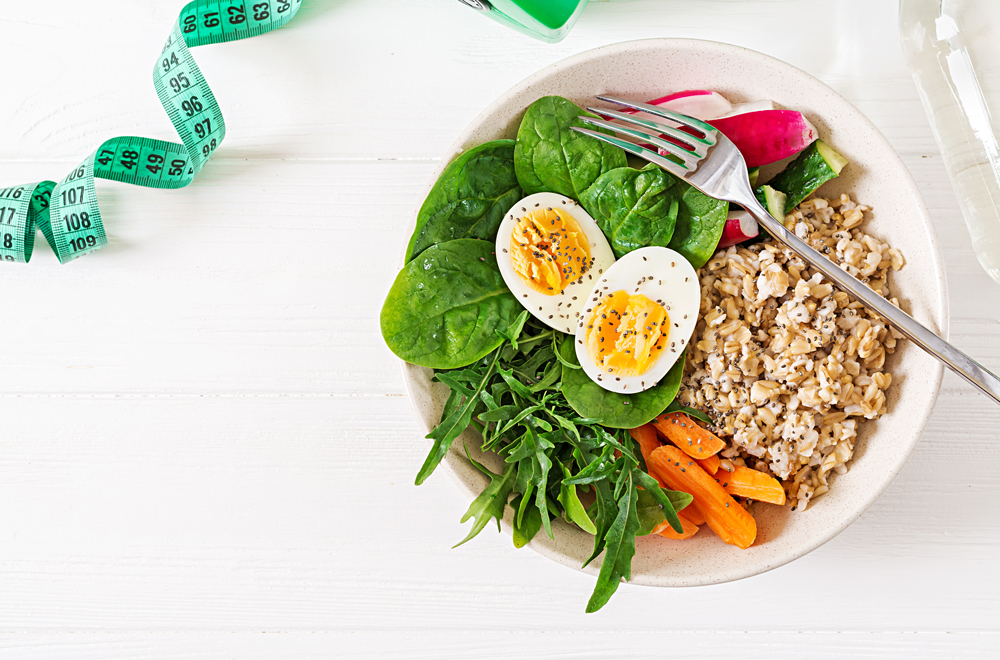
Article by Oana Iosifidis
During our childhood, most of us remember being told that we should not eat between meals, so that “we do not lose our appetite”. So, the 3 meals a day (breakfast, lunch and dinner) were and are a way of life. A new theory comes to the fore to dispel the myth of the three meals of the day, the theory of 6 (small and frequent) meals. Let’s look at some of the benefits of the 6 meals of the day. Along with this, as we always do, we will give you some key words in Romanian language, being for the few lines of this article your nutritionist and your private Romanian tutor at the same time! Hence, before you start your Romanian lessons for foreigners (as we suppose you are one yourself), take a look at this educational article!
– Maintaining the basal metabolism at high levels:
The long duration between meals is perceived as a threat by the body, considering that it will lack food-fuel so that the stored fat does not burn.
maintain = a menține
level = nivel
duration = durată
between = între
body = corp
fat = gras
– Proper body function:
Frequent meals keep our blood sugar levels stable, without unwanted ups and downs.
proper = potrivit
meal / table = masa
stable = grajd
– Losing or maintaining weight:
Research has shown that frequent and small meals during the day, not only help maintain and lose weight, but also reduce body fat, because the consumption of healthy and low-fat small meals, reduces daily calorie intake, as it reduces hunger.
research = cercetare
weight = greutate
during the day = în timpul zilei
during the night = în timpul nopții
frequent = frecvent
reduce = reduce (same as in English)
consumption = consum
daily = zilnic
hunger = foame

– Lowering blood cholesterol levels:
Research has shown that blood cholesterol levels in people who ate five or more small meals a day were about 5% lower than in those who ate only one or two times, regardless of the amount of calories they received.
blood = sânge
cholesterol = colesterolul
people = oameni
amount = cantitate
calories = calorii
receive = a primi
Let’s see some useful things about these six meals that we mentioned above:
Breakfast = Mic dejun
This meal is the most important of the day. It should provide energy to our body, without giving the feeling of heaviness.
important = important (same as in English)
the most important = cel mai important
energy = energie
heaviness = greutate

Brunch(international definition)
Many snacks are high in fat and / or sugar and low in fiber, vitamins and other nutrients, which can lead to an unbalanced diet. That’s why it’s so important to choose the snacks we eat. Some of them could be fresh fruits and vegetables, dry fruits without sugar, protein bars.
sugar = zahăr
fiber = fibră
vitamins = vitamine
nutrients = nutrienți
diet = dietă
fresh fruits = fructe proaspete
dry fruits = fructe uscate
vegetables = legume
Lunch = Masă de prânz
This meal should include foods of all categories (carbohydrates, proteins and fats) and always be accompanied by a salad.
category = categorie
carbohydrates = carbohidrați
proteins = proteine
always = mereu
salad = salată
Dinner = Masă de seară
A light meal and at the same time to fill us up like brown bread with some cheese, a boiled egg or a yogurt.
light = ușoară
at the same time = în același timp
bread = pâine
cheese = brânză
boiled egg = ou fiert
yogurt = iaurt
Before sleep = Înainte de culcare
It could be some milk or again fruits with yogurt or honey.
milk = lapte
honey = miere
